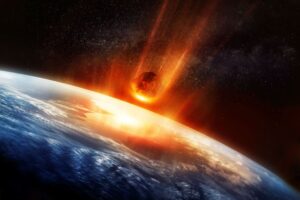It’s tempting to think that the busiest, most vital cities and trades will be around forever. Places like New York, London and Shanghai hold a secure place in the 21st Century collective consciousness as ‘the centre of the action’ – ‘the places’ for culture, adventure and business.
One can easily forget that, like Shelley’s Ozymandias, past civilisations probably supposed that their cities of renown, like Babylon, Troy, and Pompeii, were just as immortal. Yet, as each of them succumbed to war, natural disaster, or simply insignificance, they left behind a trace of their former greatness; a testament to a bygone era. One such city in the Caribbean commanded a huge regional significance in the 17th Century, only to vanish beneath the waves in mere moments. But this wasn’t the fabled Atlantis; this was Port Royal, once reckoned to be ‘the wickedest city on earth’.

Originally occupied by the indigenous Taino Indians, Port Royal, as it was later known, was an island that provided a great natural harbour to Jamaica. In the early 16th Century it was brought to the attention of Europe when Spanish colonialists discovered it in their voyages to the New World. However, seeing little use for the land, it was not utilized in any significant way. That changed in 1654 when, whilst returning from a defeated military venture in Spanish Haiti, an English expedition under the command of Oliver Cromwell seized the island as a consolation prize. On the newly taken territory, they established a settlement named ‘Fort Cromwell’, later changed to ‘Port Royal’ at the reinstatement of Charles II to the throne.
Since the area’s geography was easily defensible, Port Royal quickly became one of the wealthiest ports in the Caribbean, providing vital trade links from Europe to the New World. Unfortunately, although perhaps inevitably, the port also began to become a hive of illegal trade and piracy. The busy trade opened up an abundance of fresh opportunities for the pirates, some of whom actually traded in their Jolly Rogers to become legitimate privateers instead. Flush with extraordinary wealth, the inhabitants of the port garnered a reputation for ostentatious displays of drinking, gambling, brawling, and general iniquity. If ever there was place like the Tortuga, the pirate-infested island portrayed in the Pirates of the Caribbean film series, it was here – even though Elizabeth’s wealthy port town home was actually named after this lost city.
Like all ‘good’ things, the party was soon to end. In 1692, less than four decades since the English made it Jamaica’s sin city, an enormous earthquake struck the West Indies, creating a tsunami that decimated Port Royal. In the ensuing carnage about two thirds of the settlement was claimed by the sea, sinking over 40 feet down to the sea floor. The initial death count stood at 1,600 with 3,000 injured. In the days following, a further 3,000 perished from the rampant disease left in the tsunami’s wake. Pious Jamaican officials, wary of the reputation that the city had accumulated, dubbed it an ‘act of divine retribution’ for man’s wickedness.
When divers began to re-explore the ruins of Port Royal in the 1950s, they found a treasure trove of historical artifacts and insights into everyday life during the 17th Century. Although some segments of land had crumbled to total ruin during the disaster, others had simply broken off and settled on the sea floor completely intact. Remnants left behind included pottery, household implements and tools, and clothes. Most remarkable, however, was a pocket watch found among the dead that had stopped at the exact time of the earthquake: 11:43am on the 7th of June 1692.
The exploration of Port Royal was a superlative archaeological find; one can’t help but be reminded of Pompeii, another influential city that was wiped off the face of the Earth, only to be preserved for posterity. Indeed, that these terrible events are able to furnish us with an authentic glimpse of the past may be their only silver lining: to transport us back to a time when life appeared to be at its peak. We must be grateful that in our major cities, for now at least, the party goes on.







